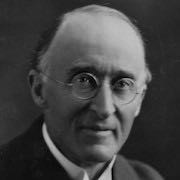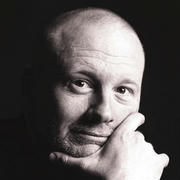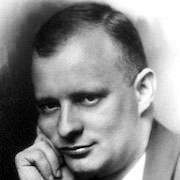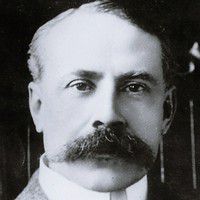Eric Francis Harrison Coates (27 August 1886 – 21 December 1957) was an English composer of light music and, early in his career, a leading violist.
Coates was born into a musical family but, despite his wishes and obvious talent, his parents only reluctantly allowed him to pursue a musical career. He studied at the Royal Academy of Music under Frederick Corder (composition) and Lionel Tertis (viola), and played in string quartets and theatre pit bands, before joining symphony orchestras conducted by Thomas Beecham and Henry Wood. Coates's experience as a player added to the rigorous training he had received at the academy and contributed to his skill as a composer.
While still working as a violist, Coates composed songs and other light musical works. In 1919 he gave up the viola permanently and from then until his death he made his living as a composer and occasional conductor. His prolific output includes the London Suite (1932), of which the well-known "Knightsbridge March" is the concluding section; the waltz "By the Sleepy Lagoon" (1930); and "The Dam Busters March" (1954). His early compositions were influenced by the music of Arthur Sullivan and Edward German, but Coates's style evolved in step with changes in musical taste, and his later works incorporate elements derived from jazz and dance-band music. His output consists almost wholly of orchestral music and songs. With the exception of one unsuccessful short ballet, he never wrote for the theatre, and only occasionally for the cinema.
Cite error: There are <ref group=n> tags on this page, but the references will not show without a {{reflist|group=n}} template (see the help page).











